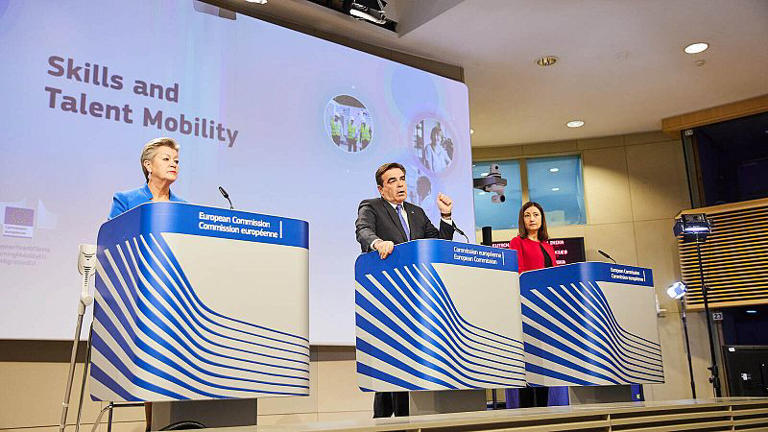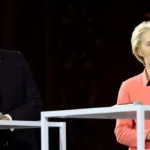
Brussels invents a “Tinder” to attract talent from third countries
The European Commissioner for Home Affairs, Ylva Johansson, called it the “Tinder for looking for work in the EU”, referring to the famous dating app. The European Commission is proposing a platform to connect job seekers with companies based on their skills and qualifications.
Participation in the talent pool is voluntary for member states, but Brussels hopes that funding for professional training and reskilling will incentivize governments to join.
The platform will be based on the current Eures platform, which connects European workers with job offers in other EU countries.
“This talent pool does not challenge national expertise in deciding labor immigration quotas, but is intended to facilitate the recruitment of the right skills, as easily and quickly as possible,” Johansson explained. Many member states have asked Brussels to help coordinate the matching of skills and shortages.
With the reduction of the active population, which is particularly affected by the demographic decline, many sectors are struggling to find qualified workers. Construction is among the first, but the problem also involves healthcare and IT.
The Union needs seven million more workers in the labor market by the end of the century due to demographic change. The European executive has already raised the alarm about the probable upheaval of the labor market which will put immense pressure on public budgets, pensions and the healthcare system.
The national workforce “is not enough
“The untapped potential of the EU’s internal workforce should not be forgotten, but it is not enough either,” said European Commission Vice President Margaritis Schinas.
“We will really need more non-EU labour,” added Johansson, explaining that without the 10 million third-country nationals working in the Union, the economy of the 27 countries would “stop”. They represent 5% of its workforce.
According to Johansson, the Talent Pool could help discourage irregular departures and trips to the Mediterranean.
“We are taking a step forward on this front, but to do it effectively, we also need to provide legal pathways,” she explained.
But the line of some European governments, which often approach the issue with a highly ideological position, is very different.
France, Italy, Hungary, Poland and other governments of different political colors are experimenting with pronatalist policies to increase birth rates and fill labor shortages through population growth policies.
But Schinas warned against falling for the “miracle solutions” proposed by demagogues and populists.
“We are now accustomed to the toxicity that some political forces want to introduce into the public debate on migration: they promise that the magic solution is to close the borders, return to nationalism, refuse any type of negotiation with neighbors and with Brussels,” he said.
“We do not follow this path […] and we will continue to oppose this populist discourse,” he added.
A global race for talent
Schinas presented the plan as a “foreign policy tool” as much as a social policy tool, as it aims to strengthen Europe’s industrial competitive advantage on the global stage, with growing demand for skills needed for decarbonisation and digitalisation of parts of the economy.
“Europe is engaged in a global race for talent. Just as we are fighting a global race for raw materials and energy, we are also fighting a global race for talent against very powerful competitors who have direct access routes for citizens of third countries: United States, Canada, New Zealand and Australia”, he explained.
The platform is designed to address gaps in low-, medium- and high-skilled sectors, with a focus on strategic sectors “linked to the green and digital transition”.
The bloc also called on member states to streamline processes for recognizing foreign skills and qualifications, saying bureaucracy discourages the immigration of skilled workers, a phenomenon called “brain waste.”
According to Johansson, racism is also a stain on the bloc’s reputation around the world and risks preventing skilled workers from third countries from applying for jobs.
“We must also fight against racism, because this is also an obstacle that prevents qualified people from choosing to come to the European Union,” Johansson said.
This article is originally published on .msn.com





